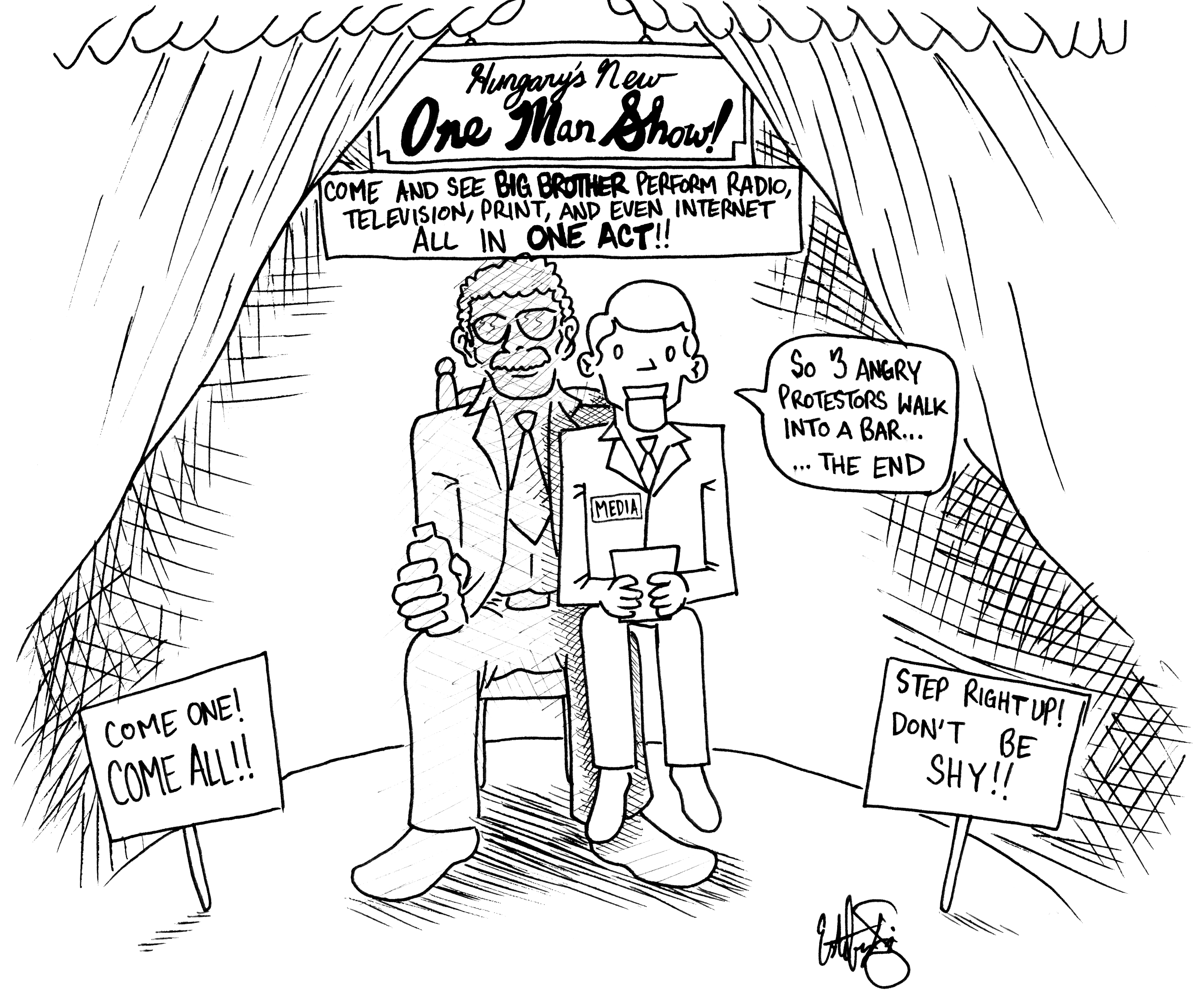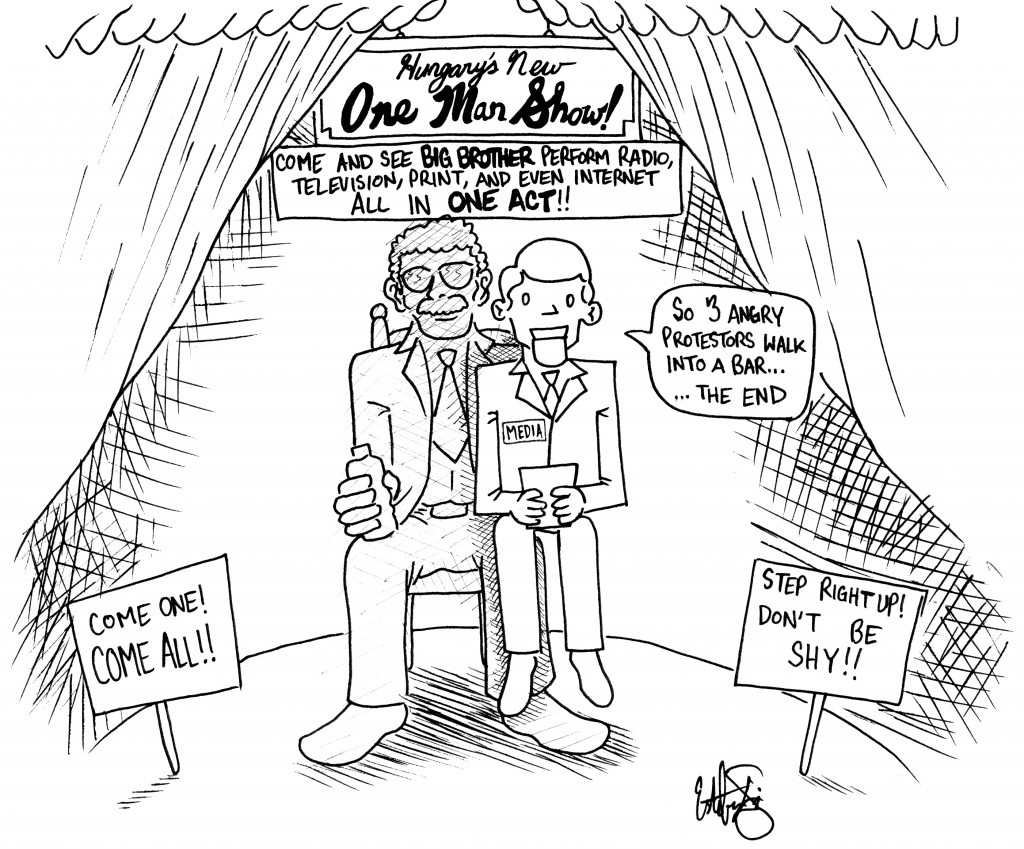On Jan. 1, the Hungarian media was given more to talk about than just what’s to come in 2011. A new law enacted at the first of the year by the Hungarian Prime Minister Viktor Orban now requires all national media outlets — including bloggers — to register with a government-approved media authority and be subjected to government scrutiny.
The mission of the new law is to ensure fair and balanced media coverage. According to an article by the Mail Foreign Service, a British news outlet, if the five-person media authority determines an outlet produces coverage that is “unbalanced” and/or “offensive to human dignity,” the outlet may be punished with substantial fines.
Individual journalists are also affected, as they may be coerced into identifying confidential sources if the disclosure is found to be in the public’s interest. The authority has also reserved the right to monitor and limit news coverage concerning crime in or around the nation.
At first glance, a law requiring fair and balanced media coverage sounds ideal, especially since the slow corruption of media has been the target of increasing frustration and anger among the public.
However, the new law holds an ironic repercussion: the regulated media will be censored to only represent the best interests of the government rather than the well-balanced coverage the news industry’s standards call for. The media authority, undoubtedly greatly influenced by Orban, will most likely encourage a “balanced” opinion heavily weighted in the direction of Orban’s own biases.
However, this idea of an “unbiased” journalist has been argued against by many, claiming that the personal biases of writers make the goal of objectivity a moot point.
However, true journalists are those that have accepted a set of ethics that looks to ensure the accuracy of all work done.
In fact, it is a misconstrued belief to think that a journalist’s attempt to be objective is an attempt to be free of bias.
According to “The Elements of Journalism,” a book by Bill Kovach and Tom Rosenstiel, the 1920s saw a “call for journalists to adopt objectivity” after years of corruption. At that time, the general public looked for journalists to “develop a consistent method of testing information — a transparent approach to evidence — precisely so that personal and cultural biases would not undermine the accuracy of their work.”
Implementing these tests, thoroughly editing articles and creating a set of company ethics are lengths organizations go to ensure their credibility. The Hungarian media will now be subjected to the tests of their country’s figurehead, about whom numerous editorial decisions will be made at news organizations.
Hungary’s new twist on the law is a form of dictatorship, especially since those who are found to “misrepresent” the government or current issues may be punished.
Bloggers, who are also included under this law, are basically online, self-published columnists. While in a way it is fair that bloggers are subjected to the law since blogging is fast becoming a popular form of general news media, it is still not permissible that bloggers must follow Orban and his media authority’s standards of bias.
Simply put, the new law would eventually eradicate personal opinion and its inclusion of bloggers is a severe suppression of self-expression. At the outrage of the European Union – of which Hungary is a member – Deputy Prime Minister Tibor Navracsics stated, “If there are really problems in practice, we will not hesitate to modify the law, which is in principle a good piece of work.”
This statement clearly implies a determination to control and regulate the media despite the disapproval of other European nations, which could potentially ruin international relationships and allies. Although the government claims to support the public’s interest by asking journalists to report fair and balanced coverage, censoring the media in favor of the Hungarian government is in fact hindering the media’s obligation to serve the needs of the public, first and foremost.
And while in principle this may sound ideal to the Hungarian government, it fails to provide balanced and fair coverage in the eyes of the Hungarian nation and the rest of the world. The ethical standards of journalists should remain out of the reach of any government. Journalists and news organizations should be kept answerable to the one group they are charged with educating — the people.
Editorials are written by the Lariat editorial board consisting of five staff members: Nick Dean, Caty Hirst, Carmen Galvan, Jessica Acklen and Chris Derrett.





